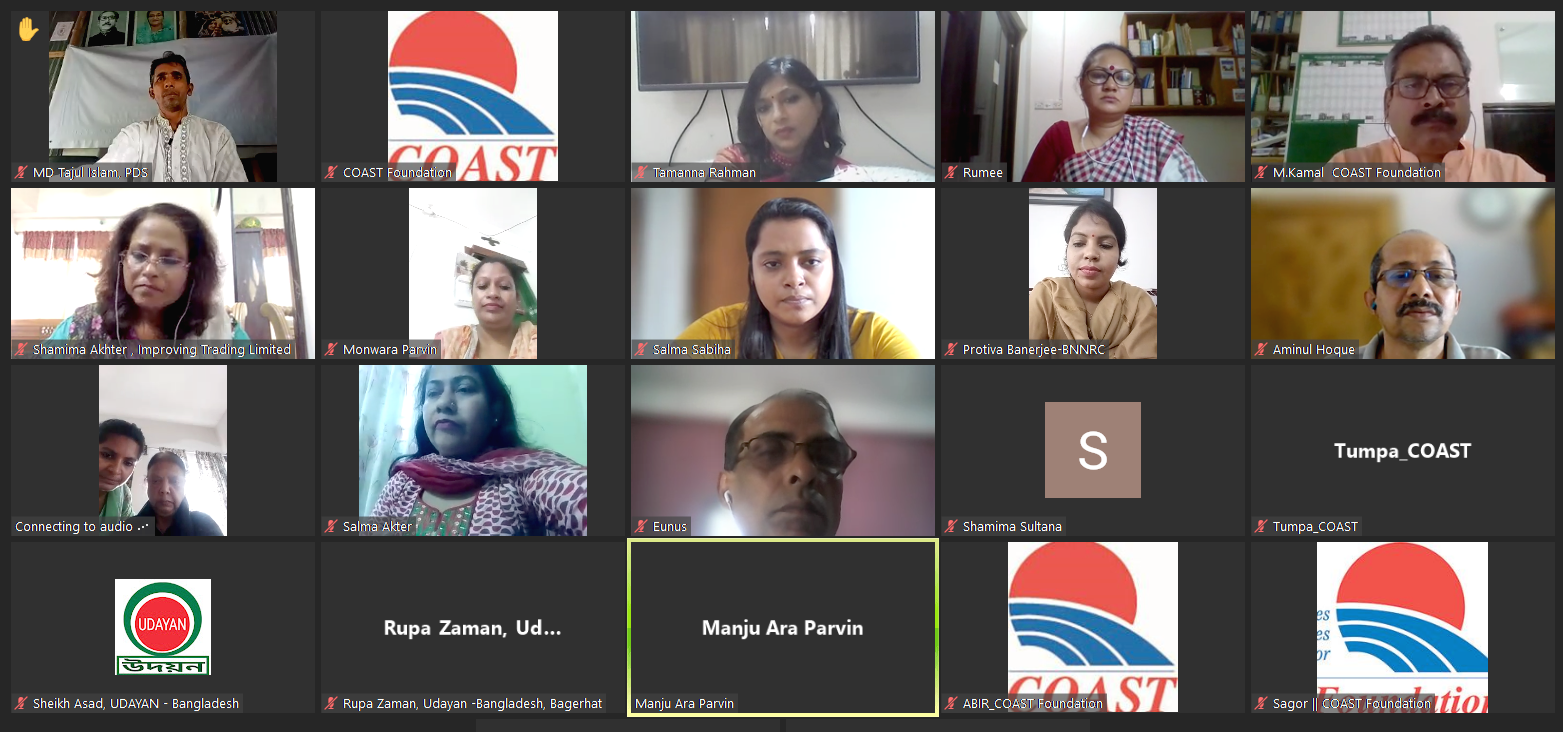Ferdous Ara Rumee & Mustafa Kamal Akand
Published:2022-10-15 01:32:51 BdST
Press conference on the eve of the International Rural Women's DayCivil Society Urges Special Actions to Protect Health and Livelihoods of Climate Vulnerable Women and Girls
Rights-based civil society representatives demanded urgent action to safeguard the lives and livelihoods of women and adolescents, whose health is at danger owing to the adverse effects of climate change.
They were speaking at a virtual press conference held today on the eve of the International Rural Women's Day, to be celebarated tomorrow.
The National Committee for International Rural Women's Day Obserrvation organized the press conference.
Speakers in the press conference opined that the health, livelihood, and environment of the people of the coastal areas, lowlands, hills, and mountains have been affected the most due to the impact of climate change. Its impact on food, nutrition, livelihood as well as the health of women and girls is severe.
One of the most harmful effects of climate change can be identified is forced to use excessive saline water in daily life. Excessive use of saline water causes various uterine diseases, the disruption of menstrual health and hygiene in girls, and skin diseases. The lack of fresh water in mountain ranges due to deforestation also creates such hazards for women and girls.
From the press conference, it was called to establish water purification plants at government expense in saline areas, to provide specialized services to women and girls in community clinics, and to strengthen alternative employment creation.
International Rural Women's Day Celebration National Committee chairperson Shamima Akhter chaired the event while committee members Masuda Farooq Rata, Manju Ara Begum, Syed Aminul Hoque, Sheikh Asad, Salma Akter, Monowara Pervin, Tahrima Afroz, Syeda Shamima Sultana, Protiva Banerjee, Mustafa Kamal Akand and others also spoke.
Tamanna Rahman presented the keynote speech on behalf of the organizers at the press conference. The event was moderated by Ferdous Ara Rumee.
As key note speaker of the event Tamanna Rahman said, climate change is harming the life, livelihood, agriculture, and health of the people of coastal, haor, char, or hilly areas. And women and girls are usually the first victims of any disaster. According to research, the amount of salt entering women's bodies with drinking water is causing more miscarriages in women in coastal areas than in other parts of the country. Due to the lack of financial ability to get long-term treatment, most marginal women consider a hysterectomy as a permanent solution. Due to the lack of clean water, most girls are forced to wash their menstrual clothes with salt water. Which causes various diseases in their uterus. On the other hand, mountain women suffer from malnutrition, and on top of that many of them fall ill while collecting water along the mountain paths. On the one hand, the risk of child marriage is increasing in climate-affected areas, on the other hand, there is insecurity. Considering these realities, it is important to adopt and implement special plans for the people of this region. In particular, they need to ensure their health, nutrition, livelihood and emergency healthcare.
Masuda Farooq Rata said, the children of affected families are being forced to join work to earn money. In addition to various forms of child abuse, many families are marrying off girl children early.
Manju Ara Begum said, Adolescent mothers are at risk of death due to early marriage and early motherhood.
Syed Aminul Hoque said, an alternative employment opportunities should be created for the women of Haor and coastal areas. For this, necessary training and raw materials should be provided for local women.
Ferdous Ara Rumee said, every community clinic at the union level should provide women's reproductive health services with trained nurses and free materials (sanitary pads, birth control materials), etc.
Shamima Akhter said, women are suffering from common water-borne diseases including leucorrhea due to the use of salt water for daily household work such as bathing, agricultural work, cattle rearing, shrimp hatching, and other economic activities.
On behalf of the organizers, Mustafa Kamal Akand said, International Rural Women's Day is being celebrated in more than 60 districts of the country. Like every year, the day is celebrated across the country through various programs including rallies, seminars, human bonding, organizing fairs, and giving awards to rural women for their contribution in various fields.
Unauthorized use or reproduction of The Finance Today content for commercial purposes is strictly prohibited.


